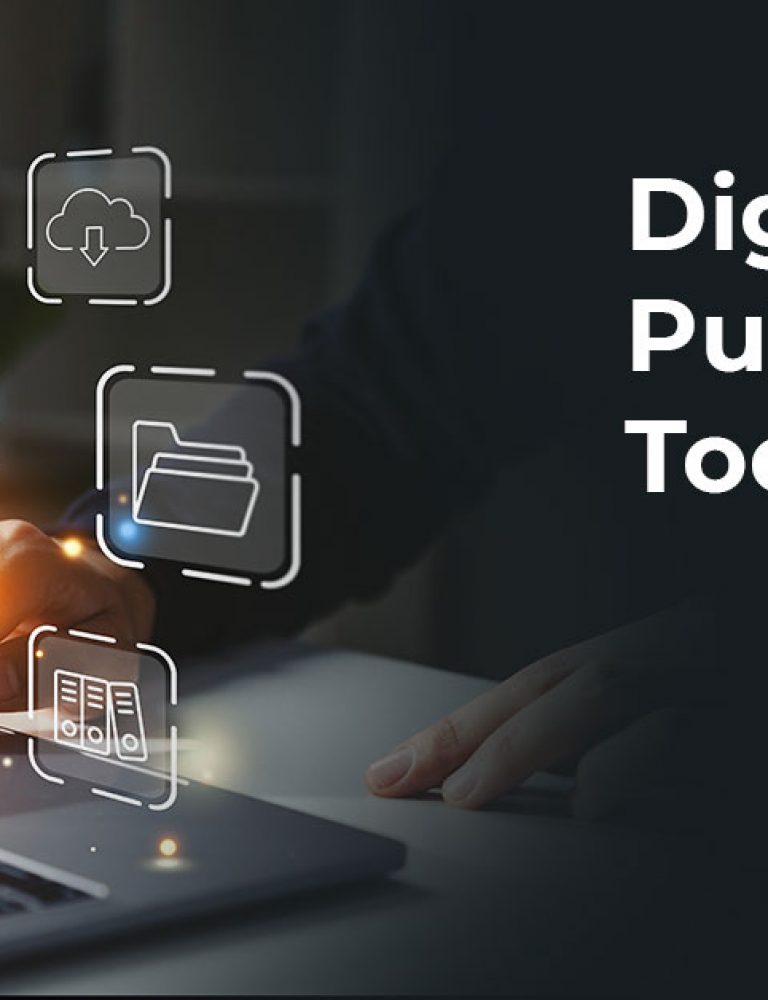Digital content is advancing, evolving, and transforming at a rapid pace. And so is the rate of cyber threats associated with digital publishing. This is one of the leading reasons ePUB DRM solutions are a hot topic for discussion in today’s modern publishing industry.
Thus, it is extremely important to protect copyright and intellectual property so that publishers can share their content worldwide in a risk-free manner. Digital Rights Management (DRM) offers an added layer of protection for your digital content, especially ePUBs, which is a common format that is used to convert traditional content or PDFs into modern eBooks.
Leading digital textbook platforms like KITABOO offer DRM systems to protect your eBooks and ensure the protection of intellectual property rights.
With this guide, we will delve deeper into the meaning, benefits, and significance of choosing the best ePUB DRM solutions to ensure the safety of online content.
Table of Contents:
I. What is the Meaning of Digital Rights Management (DRM)?
II. Why Consider Using ePUB DRM Solutions?
III. How Do ePUB DRM Solutions Work?
IV. What are the Advantages of ePUB DRM Solutions?
- Prevents Unauthorized Access
- Protects Authors from Revenue Loss
- Helps Comply with Regulations
- Safeguards Intellectual Property
What is the Meaning of Digital Rights Management (DRM)?
With more authors, publishers, scriptwriters, educators, storytellers, and content creators publishing their work online as eBooks, there is an increased risk of regulation access.
Content is shared across multiple platforms in several formats and is accessible on various devices and operating systems. However, it makes it easier for unauthorized users to access copyrighted material. It further permits them to indulge in unauthorized copying, downloads, sharing on other platforms, and illegal distribution of content.
DRM systems serve as a shield or a security system that safeguards your intellectual property and protects your eBooks. DRM prevents users from copying, printing, and sharing eBooks and protects revenues that can be generated from such content.
Why Consider Using ePUB DRM Solutions?
Among the various eBook formats, ePUB stands out as a popular choice. Content creators and authors can use a powerful platform to share their work with a broader audience.
This enables them to share content through cloud-based eBooks. Once your ePUB is available online in the form of eBooks, it becomes challenging to maintain control and protection over it. DRM solutions allow you to regulate how, when, and by whom your eBook is used.
ePUB DRM serves the following purposes:
- Restricting distribution of eBooks
- Controlling inappropriate and unauthorized downloading, sharing, copying, or printing of digital content
- Controlling the accessibility of content on several devices
Various industries use ePUB DRM solutions to regulate authority limits within legal boundaries. Let us consider some use cases:
- The Music Industry uses DRM software to limit the usage of purchased music downloads.
- The movie and TV Industry implement Digital Rights Management (DRM) to restrict access to content based on a customer’s subscription.
- Mobile Phone and IT companies utilize DRM solutions to impose limits on content use and duplication by consumers.
- Software and game companies apply DRM systems to prevent unauthorized usage of products
- eBooks use ePUB DRM solutions to prevent consumers from accessing files without the correct key.
There are several content creators, publishers, readers, and learners who prefer eBooks that are not DRM-protected. There is an ongoing debate about whether to trust ePUB DRM solutions or not.
Let us give you a gist of issues associated with NON-DRM-protected eBooks:
- Piracy and Unauthorized Distribution – This includes illegal sharing and distribution of copyrighted digital content
- Data Breaches – When cybercriminals steal sensitive user data, including personal information, payment details, and reading habits.
- Ransomware Attacks – Use of malicious software that locks users out of their systems until a ransom is paid.
- Malware and Phishing – Scams that can compromise publishing industry professionals’ computers and networks
- Supply Chain Attacks – Includes vulnerabilities in third-party software or services used by digital publishing platforms.
- Credential Stuffing and Account Takeovers – Attackers use stolen or leaked credentials obtained from data breaches
- Social Engineering Attacks – Cybercriminals trick publishing industry professionals into disclosing sensitive information.
How Do ePUB DRM Solutions Work?
DRM solutions control eBook distribution, limit eBook sharing options, limit the number of devices allowed to download the eBook, and restrict the copy-paste feature. They empower computers or procedures to dictate control.
Let us look at the key stages and understand the workings of Digital Rights Management (DRM).
- Stage 1 – Packaging: This is the stage when DRM encryption keys are embedded into digital materials like software, eBooks, and media.
- Stage 2 – Distribution: This stage includes the process of sending DRM-enriched files to customers via web server downloads or emails.
- Stage 3 – Licensing: In this stage, specialized servers are used to authenticate legitimate users and grant access to DRM files, while preventing unauthorized access.
- Stage 4 – License Acquisition: This stage allows legitimate customers to acquire encryption keys to unlock their files.
What are the Advantages of ePUB DRM Solutions?
DRM provides several benefits for ePUB protection:
Prevents Unauthorized Access
Digital Rights Management (DRM) helps in implementing various security measures. DRM encrypts the content, making it unreadable without the appropriate decryption key.
Additionally, DRM solutions require readers and learners to authenticate their identity and may also enforce device limitations.
Protects Authors from Revenue Loss
Online publishing lowers publishing costs and allows unlimited copies, but it also increases the risk of sharing copyrighted content. This can lead to decreased sales and revenue loss.
ePUB DRM solutions protect authors from losses occurring because of unauthorized sharing and ensure that they receive payment for their eBook’s copyright.
Helps Comply with Regulations
When sharing sensitive data, such as personal information, compliance with regulations is essential to prevent unauthorized access. ePUB DRM ensures data confidentiality, allowing you to securely share information with authorized individuals.
Safeguards Intellectual Property
ePUB DRM allows you to control who can download and view your content. DRM software helps set limits on viewing duration. Once the time limit expires, readers cannot access the copyrighted eBook, which helps protect the intellectual property and assets of publishers.
What are the Leading ePUB DRM Solutions Available Today?
Here are some of the primary ePUB DRM solutions used for eBooks:
KITABOO's DRM
KITABOO ensures the secure distribution of content through DRM protection and encryption. Users require a unique access code to access the content, and it seamlessly integrates with Learning Management Systems or eBook stores.
Amazon's DRM
Amazon employs its DRM on eBooks distributed through its platform. It’s important to note that eBooks with one provider’s DRM may not be compatible with another provider’s DRM.
Apple's DRM
Apple’s DRM, called FairPlay, is applied to eBooks sold or distributed via iBooks. It restricts users from reading the eBook on devices other than Apple devices.
Adobe's DRM
Adobe’s DRM, known as ADEPT, supports ePUBs and PDFs for eBooks. It can be utilized through eBook readers like Adobe’s Digital Editions and other third-party e-readers.
Conclusion
Employing ePUB DRM solutions is an effective method to prevent unauthorized access and protect the intellectual property rights of content creators, authors, and publishers. Having an ePUB DRM ensures that your eBook is protected from misuse, and thus, it proves to be a smart way to shield your content from the risks associated with online publishing.
You can trust KITABOO, a leading digital textbook platform that follows a unique DRM approach using cloud technology and encrypts eBooks with an encryption key.
Connect with us now!
Discover How An Ebook Conversion, Publishing & Distribution Platform Can Help You
Kitaboo is a cloud-based content platform to create-publish & securely distribute interactive mobile-ready ebooks.
You May Also Like








